Dr. Dianne Kelly: Not the Same Old Story
How Dr. Dianne Kelly is working to rewrite the K-12 rule book
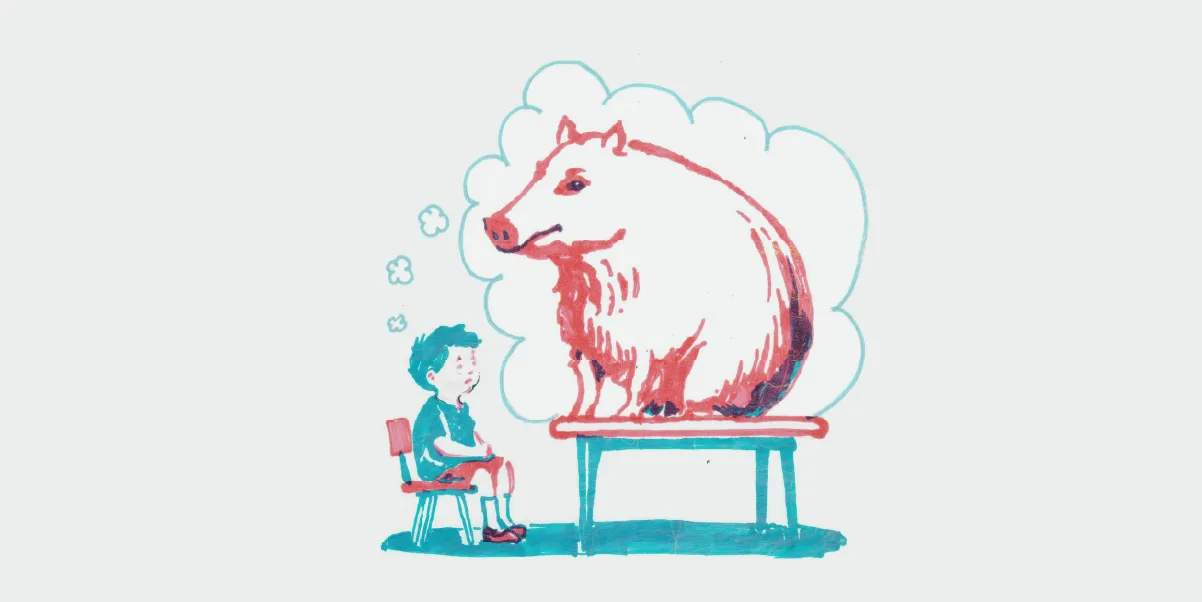
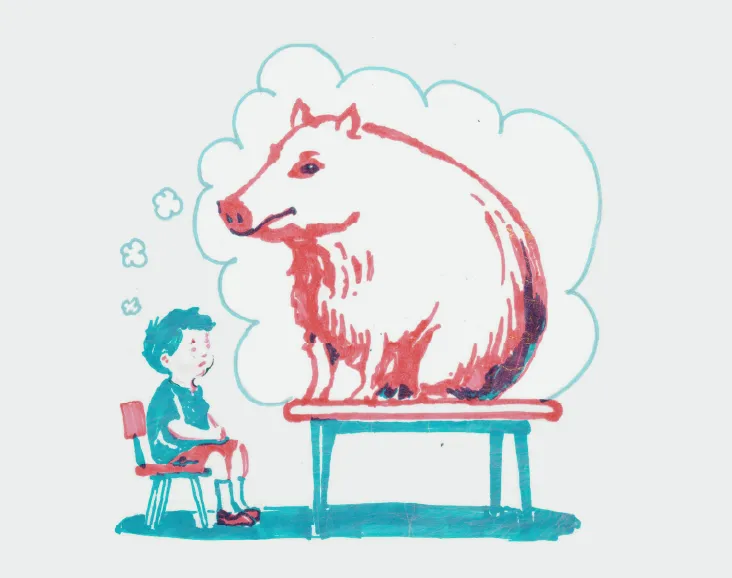
Not the Same Old Story
How Dr. Dianne Kelly is working to
rewrite the K-12 rule book
In her first year teaching, Dr. Dianne Kelly was determined to push the thinking of every single student in her classroom. While she didn’t enter the profession naively, it was much harder than she expected. “I can distinctly remember these kids saying to me, ‘Come on, Ms. Kelly, we’re the Sweathogs,” she says—a reference to the remedial class in the popular ‘70s sitcom “Welcome Back, Kotter.” “That’s what they called themselves, because they had been told for eight years, ‘You are not capable. You belong in this lower-level class where you won’t be challenged.’”
Kelly, the 2023 Massachusetts Superintendent of the Year and recipient of the 2023 Bobbie D’Alessandro Leadership Award, helms Revere Public Schools, a district in the greater Boston area that serves a vibrant and multicultural community. In fact, she has worked in the same district for all but the first two of her 31 years in K-12 education. In 2024, she celebrates her ninth as superintendent.
In her role, Kelly has focused on reforming systems that no longer serve students. Her inspiration started at home. One of six children, Kelly says her family didn’t have a lot of money growing up, but her parents had a very strong work ethic. Her father worked two to three jobs at any given time, and her mother rejoined the workforce as soon as all of her children were old enough to attend school. Despite being busy, her mother would routinely sit with her children around the dining table to help them with homework. In high school, Kelly stepped in to assist her youngest siblings.
Like the so-called “Sweathogs,” Kelly’s younger brother Greg was one of those students who struggled academically and was repeatedly placed into lower-level classes. He had an auditory processing disorder which made it difficult for him to follow assignments. “If the teacher said, ‘Open to page 25 and read the third paragraph,’ Greg would hear, ‘Open to page 25,’” Kelly explains. His teachers assumed Greg was not paying attention. He often fell behind on tasks, which generated more homework and frustrated their mother. He was smart, but he needed help. “I learned that students who are struggling can actually do really well, if guided in the right way. That has fed my passion for education since then,” Kelly says.
Growing up, Kelly’s parents were emphatic that she and her siblings attend college in order to have the opportunities they themselves hadn’t. But because of the negative feedback he received in school, Greg didn’t pursue higher education, much to their parents’ initial dismay. He would go on to make his parents very proud, however. Greg became a sergeant major in the Green Berets and actually designed missions for the elite special ops branch of the United States Army before he retired.
To Kelly, her brother’s success perfectly illustrates why traditional K-12 education methods need reform. Students like Greg have the potential to be incredibly successful, but they are often punished or overlooked in schools for reasons outside of their control. “The way we structure our schools does not honor what people are capable of,” she says.
Can’t Rule with an Iron Fist
Although Kelly describes herself as just an “okay” K-12 student, she says she was always good at math. “I really enjoyed it,” she says. “I found math problems to be almost like a puzzle and a challenge.” In high school, Kelly had a phenomenal math teacher who inspired her to lean into it. “Mr. Stengle was really engaging and didn’t give up on anybody,” she tells us. “He would sit with you forever if you needed help. So I remember thinking, as I’m wrapping up my senior year, I would love to do for kids what Mr. Stengle did for me and open up this love of math.”
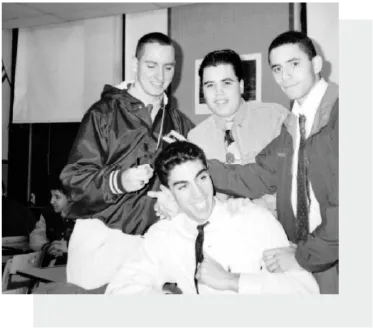
As a math teacher, Kelly was always drawn to leadership roles. While still in the classroom, she served as president of the Revere Teachers Association and was lead teacher of the mathematics department. She taught for 11 years before she was asked to become the dean of students at Revere High School, a role that dealt heavily with discipline issues. Kelly calls it the worst job she ever had.
“It just breaks your heart,” she tells us. “Without a doubt, 90% of the kids had something really awful going on in their lives, and that’s what was making them dysregulated at school—skipping classes or being rude to a teacher, whatever the case may be.” Kelly saw cases of abuse and financial difficulty that made it extremely hard for students to show up to classes, literally and figuratively. “People try to use the iron fist with teenagers, and that just isn’t the right way to engage them,” she says. “I understand we need standards and expectations for behavior, and that there must be consequences when those are not met. But that doesn’t mean that we have to operate in such a systematic, factory model of education.”
Kelly always expected she’d return to the classroom, but she found that once she started down the administrative path, she couldn’t go back. She transitioned from dean of students to director of mathematics, which morphed into the director of STEM before leading her all the way to the superintendent’s office.
As superintendent, Kelly has seen behavioral issues become even more widespread after the pandemic—and she has recognized many of the same issues she dealt with as dean of students. “Everybody was on edge,” she says. “Students lost loved ones and had a lot that they were dealing with socially and emotionally.” When students and staff returned to school, Kelly says administrators expected everyone to “be normal,” but they just weren’t ready for that. School policy was adjusted in the wake of that trauma—it now states that students can miss more than five classes per quarter and still pass the class, as long as they can show mastery of the subject. The point is not to let students off the hook, but to provide them some wiggle room as they readjust.
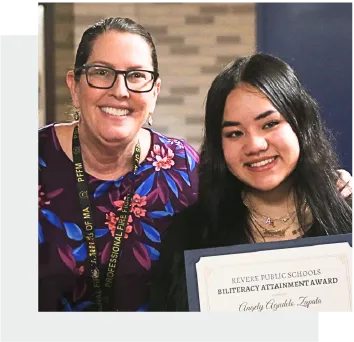
To address behavioral issues without such rigid standards, Kelly put restorative practices coaches at each of the district’s middle schools and the Revere High School campus to train groups of students to do peer mediation. When classmates get into trouble, the peer mediation system is an attempt to work through less severe disciplinary issues without excluding students from school. Coaches teach students how to cope with adversity in more acceptable ways than verbally attacking one another or being defiant to a teacher. While they don’t replace traditional measures when students engage in fights or exhibit other significant disciplinary issues, restorative practices take a more holistic approach, considering the underlying factors of each individual situation.
Real-Time Intervention
Kelly thinks one of the biggest challenges educators currently face is finding ways to provide real-time interventions so that students are not held back. As she points out, these interventions are already happening at the elementary level. “K-6 students are used to having literacy coaches, reading and math interventionists. Teachers at the elementary level focus on differentiation so that kids in the same classroom can have different experiences that meet their individual needs,” Kelly says. “Secondary schools haven’t been structured that way, so we struggle to figure out how to give a kid who has been struggling with math extra help today, not three weeks from now after they’ve already given up.”
In 2023, Kelly helped spearhead the establishment of an academy system at Revere High School. The school is divided into five smaller “schools,” each with its own assistant principal, two guidance counselors and a social worker. The intention of the program is to enable school officials to build closer, more supportive relationships with students and their families by focusing on smaller groups of them.
Additional roles have been carved out within the system to provide real-time intervention to students. Each academy has a student support specialist, who is a licensed teacher, to monitor and assist kids who are struggling academically. A student engagement coordinator is placed at each academy to keep track of student attendance and engage kids who are not in school when they should be.
The high school also has a STEM center and a writing center that are staffed daily for peer mentoring. If the student support specialist identifies a student who is struggling in math, they can refer them to the STEM center for tutoring. Teachers can reserve those mentors to come into their classrooms and assist students on specific projects. “We’re trying to build that infrastructure that allows for real-time intervention, and we’re also trying to expand the knowledge of our secondary teachers on how to differentiate their own instruction,” Kelly explains. When it comes to disciplining students as well as educating them, one size does not fit all.
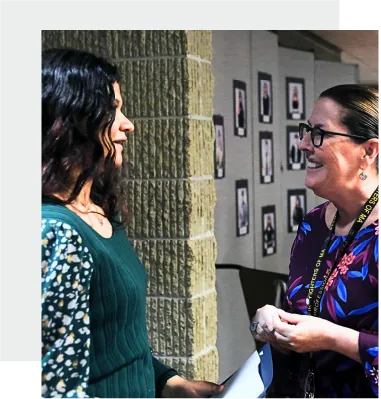
Deviating from the Traditional Tracking System
“In my mind, the most egregious thing we do is that around third, fourth or fifth grade, we tell kids, ‘You’re smart, and you’re not,’” says Kelly. “What we should be telling them is, ‘We’re going to do everything we can to help you be successful, regardless of how you learn or anything else.’”
As a teacher, Kelly remembers getting class rosters before school started that would label kids Honors Geometry, College Geometry or Standard Geometry. “I would make decisions about what those kids knew, and could do, without having ever met them. I would plan lessons that would challenge kids and push their thinking and give them to the honors kids, but not to the other kids,” she says.
The practice of tracking was originally established in the 1900s following an influx of poor immigrants from Italy and Ireland. Children from those countries were given less challenging coursework because they were expected to work in factories rather than attend college. It has since become standard practice in K-12 schools. “It was always a construct that was meant to separate,” Kelly says. “And as we see people move here from different countries, we see that same narrative repeat itself.”
Today, tracking disproportionately affects low-income, Black and Latino students. Over 65% of students in Revere Public Schools are considered low-income. The majority of its student body is Hispanic, and English is a second language for over 70% of students. As a teacher, Kelly didn’t know how to address the inequity tracking created. But when she became superintendent, she worked to do away with honors classes and put students at every academic level in the same classroom, thereby giving every student access to the same rigorous curriculum.
Despite Kelly’s efforts to pivot from the traditional tracking system to competency-based learning, the Revere Public Schools Committee has pushed the district to reinstate honors classes for the 2024-25 school year. Some parents and guardians were concerned their children would be negatively affected by eliminating honors classes. “They want what’s best for their kids, and they should,” Kelly says.
However, Kelly’s research does not bear this out. In fact, the numbers suggest the students who would have been tracked for honors classes—a majority of whom are white—were not negatively impacted by combining classrooms. In 2021, every single group of students measured completed a higher percentage of advanced coursework than in 2020. Between 2020 and 2021, white students’ completion rate jumped from 83.8% to 86.5%. At the same time, the completion rate for high needs students—English language learners, students from low-income households and students with special needs—increased from 65.9% to 77.2%.
Despite the setback, Kelly has not given up on making advanced coursework available to all students. She and her staff are taking teacher recommendations into account to identify strong candidates for honors level courses next year. But the district is also giving parents and guardians the choice to enroll their children in honors classes even if they are not recommended. “It’s quasi-open enrollment,” Kelly explains. “If we move back to a detracked system, that’s going to take time. But I think that we have deviated from the traditional enough to still say that we’re making progress and that more kids are going to have access to the rigorous kind of work that we want all kids to have.”
Deeper Learning
To further assist those students who have struggled in traditional learning environments, Kelly has partnered with the Harvard Graduate School of Education to modernize outdated, industrial-era systems in schools that harm both students and teachers. “I’ve never actually met a kid who doesn’t want to learn—I’ve just met kids who feel like school is an affront to them as a human being,” she says. “If you take that same kid and put them in an environment that is more nurturing, and where there’s more hands-on learning and deeper learning, those kids thrive.”
Deeper competency-based learning aims to help students understand the underlying structures or ideas of a lesson rather than simply memorize facts. At the end of a unit on the American Revolution, for instance, a teacher might ask students to compare and contrast it to a revolution in another country rather than test them, or assign an essay which asks students to articulate pivotal moments of a single war.
“It might be something that they literally experienced in their lifetime, or it could be something that their parents and grandparents have told them about because they fled a country that was enduring a revolution,” Kelly explains. “They would be so much more attached to that than just giving a rundown of what happened in the American Revolution—and they are still required to demonstrate their understanding of the revolution, but in a way that’s meaningful to them.”
To measure the success of shifting from detracking to deeper learning and other initiatives, Revere Public Schools is a member of the Massachusetts Consortium for Innovative Education Assessment (MCIEA). The collective of eight school districts and their local teachers unions works to develop methods that assess staff and student performance more fairly and effectively. In addition to measuring parent and student satisfaction with their school environments, the MCIEA emphasizes performance assessments in the classroom, such as asking students to write a paper on revolutions as described above, to determine their deep mastery of content and skills. “By having curriculum-embedded performance tasks, we can keep engaging kids instead of stopping the learning so that we can do the assessment,” Kelly says. “It goes hand in hand with what we’re doing around deeper learning.”
Continuing Education
Kelly shares her parents’ appreciation for postsecondary education and has worked hard to lower barriers to access for her students. In addition to Revere High School, the district is home to CityLab Innovation High School. The school was designed to give students an advantage in an ever-evolving job market through experiential learning.
Students at CityLab attend classes in their freshman and sophomore years. Then, as juniors and seniors, they’re given the option to train on partner campuses such as the Benjamin Franklin Cummings Institute of Technology and Roxbury Community College. “The program is targeted at students who struggle to be successful in a traditional learning environment,” Kelly says. CityLab students graduate with up to a year’s worth of college credits. “When you’re struggling financially, that can be a game changer,” she says.
Both high schools have dual enrollment agreements, and the district has an early college partnership with North Shore Community College. “We’re really trying to encourage kids to scoop up as many of those credits as they can,” Kelly says. She is proud of the long list of colleges and universities her 2023 graduates were accepted into, many of which are ranked among the top 100 schools in the nation.
But continuing education doesn’t stop with her students. Kelly is also passionate about providing the teachers in her district with adequate training and support. She believes the tenets of deeper learning apply both to students and teachers. To that end, the district has implemented the Colleague to Colleague (C2C) program. Participating teachers choose an academic topic they want to learn more about, in the same way students are given the option to explore revolutions in other countries. They agree to work with a consulting teacher who conducts research on the topic, helps to plan lessons, collects data in the classroom during implementation and sometimes co-teaches lessons.
The program is designed to benefit every teacher involved. Consulting teachers are released from classroom duties for two years to act in this role. Having built their own expertise in the process, they then return to the classroom, and another teacher steps into the consulting teacher position. At the end of each year, participating teachers will have earned 80 hours of professional development on their topic.
With Kelly’s guidance, the district has created over 100 teacher leadership positions. In addition to consulting teachers, those positions include professional learning group facilitators and curriculum-based lead teachers. “The reason we’ve invested so heavily in coaching positions, and the C2C program, is so that teachers can have that long-lasting embedded professional development that will really help them differentiate instruction, or learn how to engage kids in deeper learning themselves. We just have brilliant teachers and brilliant students,” Kelly gushes.
Needless to say, Kelly has made changing the education game a constant in her work. She has stayed committed to updating her schools from industrial-era models, right down to the buildings themselves. “Right now we have too few science labs, because this school was built when most kids didn’t take more than one year of science in high school. Now our kids are required to complete three years of lab science before they graduate, but our facilities don’t support that,” Kelly says.
So the Revere City Council recently approved a bond authorization worth almost half a billion dollars to build a new 21st-century high school, due in part to Kelly’s perseverance. However, she is quick to point out that the bond would not have been authorized without the students, families and elected officials who worked so hard to make it a reality.
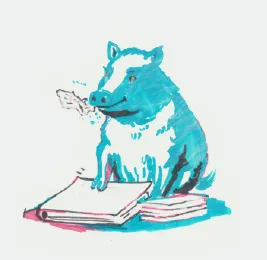
“I will not deny the fact that I am tired,” Kelly says about her near decade-long career as superintendent of Revere Public Schools. It’s a long tenure, given it’s such a demanding role full of setbacks and restarts. Then again, there’s nothing standard about the way Kelly does things. “It’s the kind of job where you have to face a lot of negativity, but when you see the little rewards, it’s like, This is why we’re here,” she says. Seeing struggling students, who remind her of her brother, thrive with some individual attention is just one of those rewards. Although many challenges remain, change is coming to K-12 education—at least if Kelly has anything to say about it.

